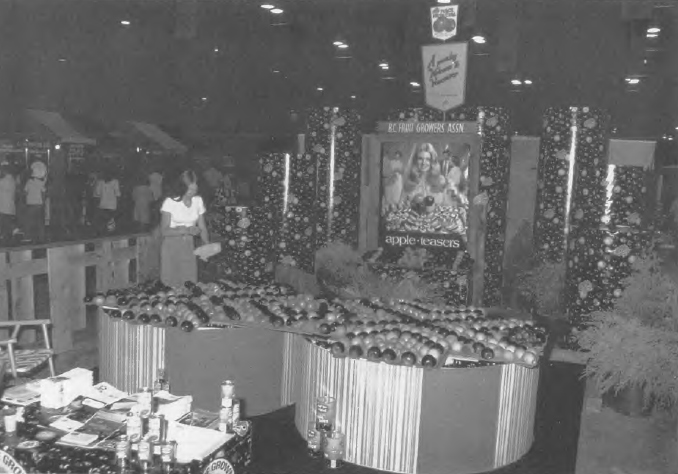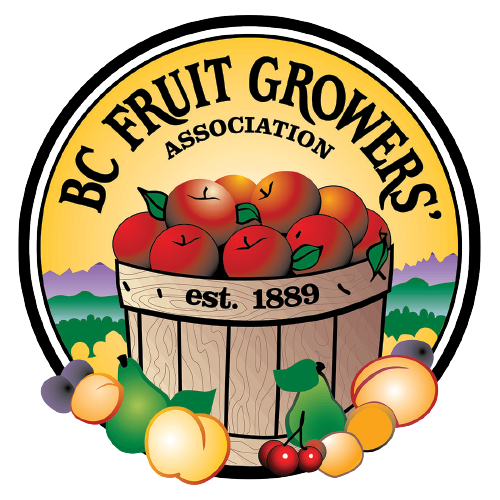The End of Mandatory One-Desk Selling for Provincial Sales and the Growth of Fruitlegging
We implore you to come to our support. We do not wish, nor do we believe your Government would wish, to have history record that orderly marketing legislation that producers desire and require came to an end during your term of office. (Letter from Charles Bernhardt, President B.C.F.G.A. to Premier David Barrett, Oct. 12, 1973.)
We were essentially in a propaganda war with these dissidents. We lost from the beginning as the media loved them. The government was inclined to sympathize with what they regarded as the underdogs, the dissidents. The public was inclined not to like marketing boards. The government did not have the history of tree fruit farming as a background, why you needed a marketing board in the first place. . . . I believe that Dave Stupich would have supported us against the Select Standing Committee on Agriculture and against the Cabinet, if we had decided to continue with one-desk selling. He asked me, “Is this what you really want?” [In the spring of 1974, the B.C.F.G.A. told David Stupich, the Minister of Agriculture, it had decided to relinquish mandatory one-desk selling.] (Recollections by Charles Bernhardt, February, 1989.)
Ironically enough, 1974, the year that Farm Income Assurance (F.I.A.) was introduced to make farming a viable way of life for members of the B.C.F.G.A., was also the year that compulsory one-desk selling for provincial sales ended. Unfortunately, the political climate and public opinion were against marketing boards. The B.C. Fruit Board, charged with enforcing mandatory onedesk selling, was in trouble. Consumers’ associations accused marketing boards in particular, not inflation in general, of being responsible for the rising price of food. The media gave a great deal of favourable publicity to the minority dissidents, but not to the B.C.F.G.A. which represented the majority of the growers. Despite public perceptions to the contrary, reports made by experts on the tree fruit industry had emphasized that mandatory one-desk selling was essential to marketing tree fruit in a cost productive manner and to obtaining a living wage for orchardists in B.C.
A common misconception is that F.I.A. was obtained by the B.C.F.G.A. as a tradeoff for giving in to the demands of the dissidents and ending compulsory one-desk selling for provincial sales. The bargaining was not that simple. The British Columbia Fruit Board and the Executive of the B.C.F.G.A. knew that enforcement of mandatory one-desk selling could not be achieved unless the provincial government amended the Natural Products Marketing (British Columbia) Act. The Fruit Board needed stronger enforcement powers for the upcoming 1974 growing season, but social attitudes were against using police to enforce marketing board policy. When it be came apparent that the requisite amendments would not be made “due to the political climate that prevailed,” the Fruit Board decided to relinquish most of its regulatory powers over the intraprovincial marketing of fruit. Thus, domestic one-desk selling through B.C. Tree Fruits Ltd. became a voluntary arrangement.
Underscoring the pain of what was happening in 1974, two champions of the struggle for onedesk selling, A. Gordon DesBrisay and A.K. Loyd, died. In 1942, Mr. DesBrisay, then President of the B.C.F.G.A. had warned, “If the producers ever allow themselves to be split again, they will only have themselves to blame.” A.K. Loyd, former B.C.F.G.A. president and charter president of B.C. Tree Fruits Ltd., had been made a member of the Order of the British Empire for his services to agriculture. He must have been saddened during his last days to see the dismemberment of the system which he and the vast majority of fruit growers had fought so hard to establish in 1939. The dissident minority had finally won.
Even though they could now opt out of onedesk selling, the maverick growers experienced three real difficulties. In 1974, two hundred of the 2800 B.C.F.G.A. membership left to become independents.
Firstly, for the next ten years, the government encouraged membership in the B.C.F.G.A. by offering the Farm Income Assurance Program only to tree fruit growers who were members of the B.C.F.G.A. Members had to have contracts with packing houses licensed by the B.C. Fruit Board (later the B.C. Tree Fruit Marketing Board) to sell through B.C. Tree Fruits Ltd., which administered the F.I.A. program. Therefore, R.H. MacDonald and Sons Ltd., after withdrawing from the B.C.F.G.A., reapplied for membership when the F.I.A. program was introduced in 1974.
Secondly, the B.C. Fruit Board, elected at annual conventions of the B.C.F.G.A., upheld central selling through B.C. Tree Fruits. It had licensing powers over export trade. Thus, the rebels and their packing houses could not sell on export markets.

Thirdly, independents could not use the controlled atmosphere and traditional cold storage facilities of packing houses which sold through B.C. Tree Fruits.
The B.C.F.G.A. hoped that the disadvantages of operating outside of the B.C.F.G.A. and F.I.A. would eventually bring most of the rebels back into the fold. Such a strategy was only partially successful. Some of the dissidents stayed with the B.C.F.G.A. but still continued to break the law. They wanted the best of both worlds: to bypass B.C. Tree Fruits Ltd. and sell to domestic markets, while retaining the financial benefits of belonging to the parent organization. Some B.C.F.G.A. members who operated road-side stands acted as illegal clearing houses for big semi-trailer trucks. Some members trucked their own produce out of the area. The advanced highway and truck transportation systems of the 1970s made it much more difficult to stop these activities. During the troubled 1930s, railway freight cars, which could be easily stopped at strategic points, had taken the fruit to market. When the present-day “peddlers”, as they came to be known, could not sell all of their crops, they needed packing house facilities and controlled atmosphere and traditional storage for foreign or out-of-province sales taking place over an extended period of time. Some packing houses processed fruit which was designated for illicit sales.
The B.C.F.G.A. and its subsidiary organizations were being used as a safety-net by a few subversive members who were undermining the orderly and equitable marketing system. This misuse of membership in the B.C.F.G.A. was known as “fruitlegging” or “fruit-rustling”. The penalty for being caught was expulsion from the Association.
The end of mandatory one-desk selling at the provincial level was somewhat ironic. The termination of compulsory one-desk selling within the province of British Columbia, on June 25, 1974, was caused by the B. C. Fruit Board’s perception that it did not have adequate policing powers to stop the dissidents from selling independently. Now a similar problem had emerged: a “fifth column” of peddlers, who kept their B.C.F.G.A. membership but continued to sell independently. In addition, the end of mandatory one-desk selling for provincial sales of fruit undermined the viability of tree fruit farming. It undercut the prices paid to all B.C.F.G.A. members. Yet, Farm Income Assurance had been introduced to make farming more viable.







